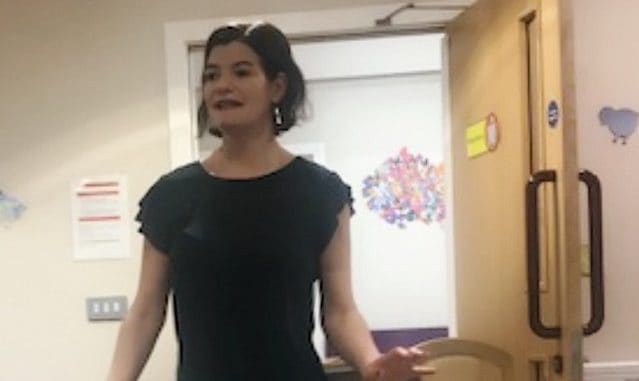
I have this stupid job which sends me singing and dancing in residential homes. I say job, but actually ‘symptom’ might be a better description; my needy malformed self demands daily doses of validation. I run about 30 music workshops a month, mainly for the elderly. We do quizzes, singalongs, chair-based exercise, conducting. They clap politely, sometimes, and ask if I feel better when I’m finished, or occasionally enquire if I have a tummy ache mid-warble, and if so, whether they should call a nurse. If only I’d got enough attention as a child, I’d probably do something useful instead.
Except…I always feel better after I’ve been to work, and how many of us can say that? I can turn up furious, wretched, hungover, and still walk out beaming. There might just be something to this music therapy lark. There are emotions that get stored deeper than words, stored instead in our limbic system, where we register sensations and feelings.
If you’ve ever been through a truly horrific situation – a car crash, say, or a Saturday night in Broadstairs – you’ll find that the memory is filed and recalled not so much with language, but instead with sensory information: the sound of crunching metal, the smell of chip fat, the feel of your heart hammering painfully against your ribcage.
Trauma victims are often haunted by vivid memories of sensations, stored deep beneath their reasoning, articulate selves. Here music can enter and heal. And for dementia patients, who often lose their grip on language as the disease progresses, music can provide a supremely powerful outlet.
Often I’ve been privileged to see residents who have forgotten how to speak suddenly starting to sing, while their relatives look on in amazement and gratitude, as though I’m some sort of wizard. But I’m just the one pressing play. Music is the miracle worker, not me.
At the other end of life, pre-language development, it can work similar wonders. A parent’s lullaby will invariably calm a shrieking baby, however dodgy the singing. Enjoy it while you can, parents; my son will promise anything if I threaten to sing show tunes.
In schools the effect of music on children’s behaviour and learning is well-documented, but increasingly the link between music and mental health is becoming ever more firmly established.
As funding for music departments in schools dwindles, as fewer offer music GCSEs and music tuition, so children’s mental health worsens. Doubtless there’s no simple correlation between the two; it’s more likely the case that the same cost-cutting, profit-worshipping instinct which has seen arts departments ruthlessly targeted for funding cuts has also had a hugely deleterious effect on children’s mental health.
It’s short-sighted, expensive and downright inhumane to value children only in so far as they can become good little unit producers and consumers. A generation that’s anxious, unhappy and medicated represents a huge waste of potential, as well as being a tragedy in its own right. Orphean wizardry is, by comparison, cost-effective, which will speak loudest to government, and a constant source of comfort and delight, which will speak loudest to children, and ultimately, all of us.

